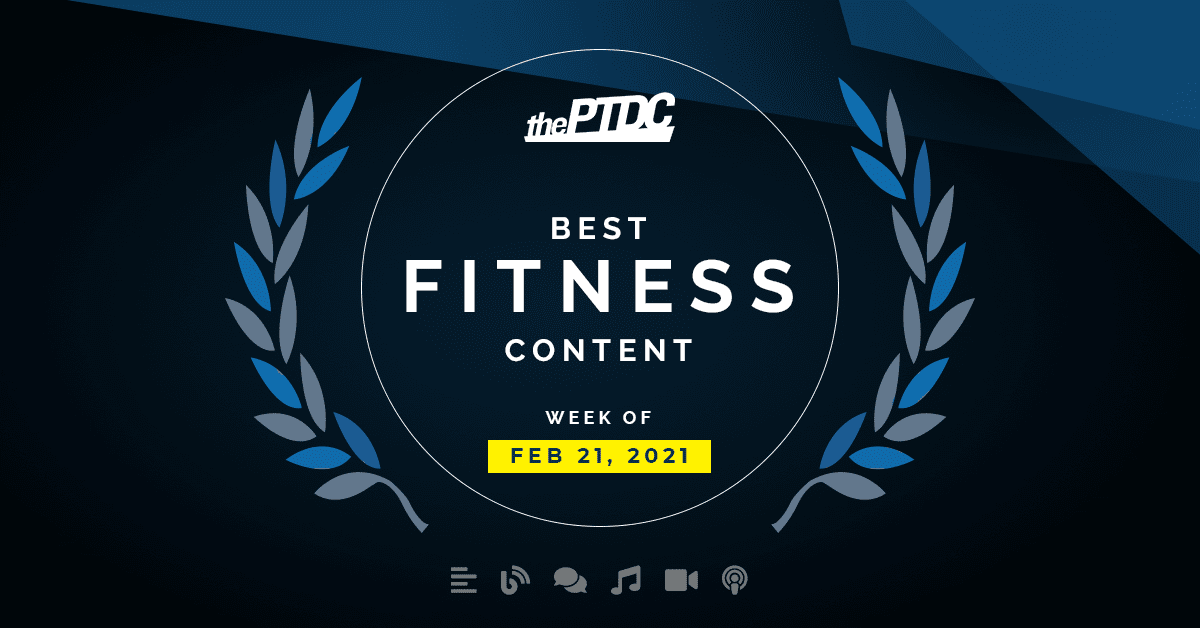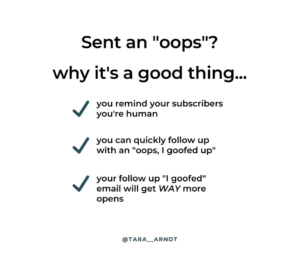Want to put great fitness content on our radar? Post on Facebook and include #PTDCBestSubmission.
Best Content of the Week
This week, we're learning about the value of mistakes. Leading off is Chris Holder, who shares three little words that made a big positive difference in his career: "I was wrong." Next Tony Bonvechio shares low-bar squat tips. And Tara Arndt reveals that sending an "oops" email isn't the end of the world and can even be a good thing. Rounding us out is a great deep dive into Dr. Oz—his background, rise to fame, and legal trouble.
— Esther Avant
Best Article
I Was Wrong -- Chris Holder, Breaking Muscle
Plenty of young coaches have had that panic-stricken moment where they suddenly realize, “I think I screwed up.” Chris Holder sure did. And in his new article, he opens up about it, and explains how learning to admit his mistake has helped him become a better coach. Check it out to learn how a little humility can help you can become a better coach too.
— Shane McLean
Best Video
What Do I Do If Low-Bar Squats Hurt My Elbows/Shoulders? -- Tony Bonvechio, The Strength House
If you work with powerlifters, you've probably noticed that low-bar positioning can cause elbow or shoulder pain for some clients. In this 3-minute video, Tony Bonvechio demos 3 tweaks to make the position more comfortable and explains why they work.
— Esther Avant
Best Social Media Post
Posted by Tara Arndt on Thursday, February 18, 2021
We've all sent "oops" emails. Maybe you forgot the attachment or the purchase link, or you made a bad typo. No doubt, it's embarrassing. But believe it or not, there's actually a huge upside for your business. So huge, in fact, that some corporations send "oops" emails on purpose! Check out Tara Arndt's post to learn more—so you know exactly what to do next time it happens and can stop dwelling on your faux pas.
— Christina Abbey
Best Podcast
Dr. Oz -- Aubrey Gordon & Michael Hobbes, Maintenance Phase
Aubrey Gordon and Michael Hobbes do some deep digging on America's favorite (and perhaps the fitness industry's least favorite) TV doctor. They do a forensic audit into his claims and background, and speculate on how he became so fascinated with questionable therapies and supplements. His meteoric rise in popularity (and subsequent trouble with the U.S. Federal Trade Commission over bogus claims) is a bizarre and captivating story. For the fitness professional, it's a good lesson in how to spot nonsense and do proper fact checking.
— Mike Howard
More Great Fitness Content
Please Stop: Jillian Michaels -- Adam Bornstein, Born Fitness
Leaner Is Not Always Healthier -- Sohee Lee & Ben Carpenter
How Long to See Results? -- Carter Good, Instagram
The High Cost of Caring: Compassion Fatigue -- Jade Wu, Savvy Psychologist












